Event Horizon at 25: Paul W.S. Anderson reflects on his misunderstood cult classic
As his "haunted house movie in space" turns 25, Paul W.S. Anderson sits down with Total Film to talk Event Horizon's gore, deleted scenes, and how he became part of MCU canon
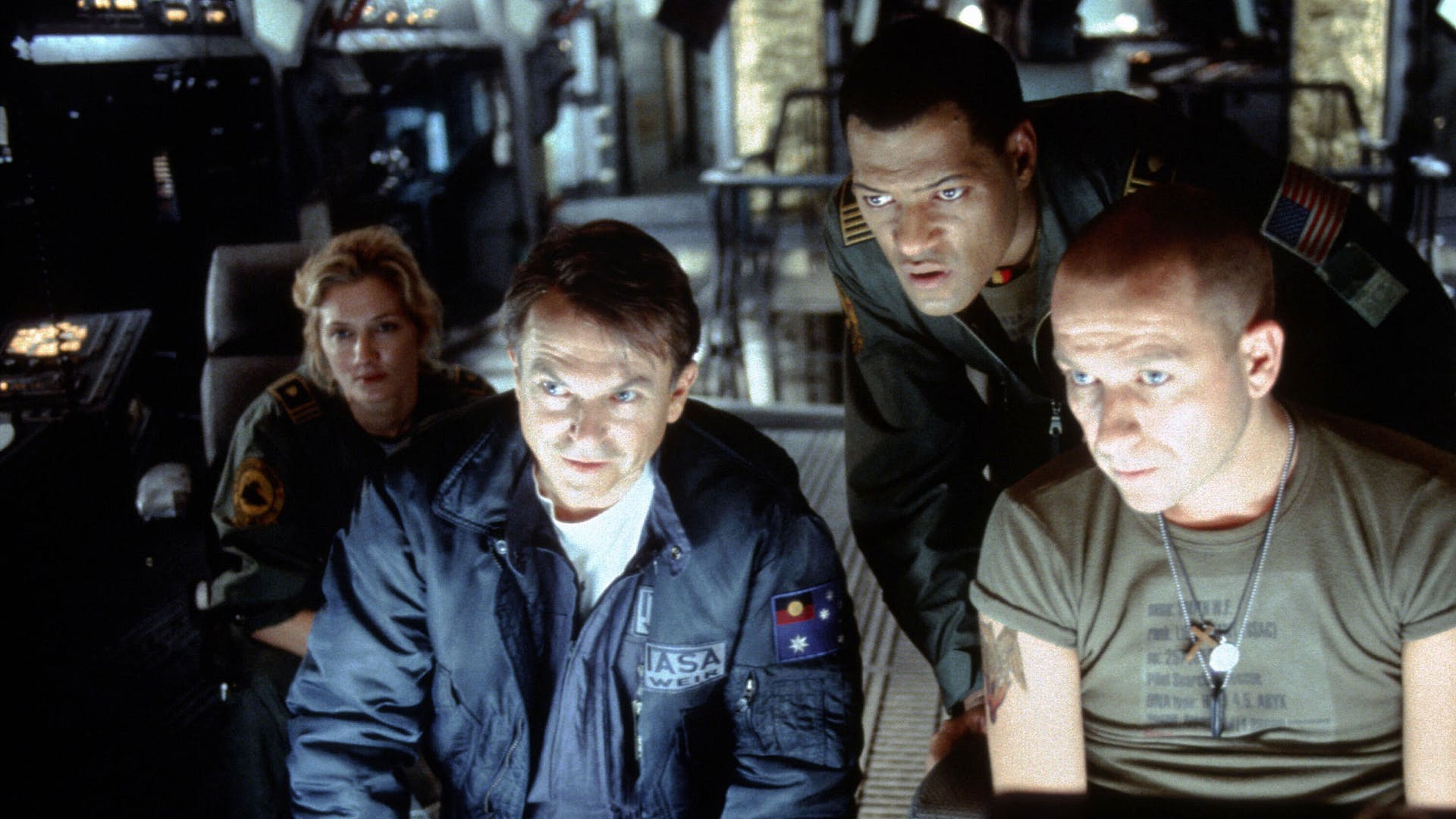
Back in 1997, moviegoers and critics alike were confused and horrified by Paul W.S. Anderson’s Event Horizon, a haunted house movie set in deep space, not unlike a planetary version of Stanley Kubrick’s The Shining. Twenty-five years later, the film has been cemented in pop culture history as both a cult classic and vital addition to the sci-fi/horror subgenre.
Set in 2047, the film follows a crew of astronauts who embark on a mission to rescue a missing spaceship called the Event Horizon. What they don’t know is that the mission, led by the ship’s seemingly harmless creator Dr. Weir (Sam Neill), is doomed from the start. Nearly three decades later, director Paul W. S. Anderson is proud of his strange sci-fi horror creation – and sat down with Total Film to talk all about it.
Total Film: Event Horizon is such a unique entry to the sci-fi/horror subgenre. I read that you were influenced by The Haunting and The Shining when you were making it. Where else did you pull from?
Paul W.S. Anderson: When we were in prep, we screened a whole bunch of movies that I felt were important the crew see before we made Event Horizon. The Shining was definitely one, and the Robert Wise version of The Haunting was another. Because I saw Event Horizon as being a combination of two fabulous things that I love: one was a haunted house movie, and the other was a space movie. So we were definitely influenced by classic haunted house movies.
We also screened 2001: A Space Odyssey and Alien as well – because I thought they were the best-looking movies in outer space, and really so [the crew] could think about why they were so good and why they looked so cool and they didn’t date, goddammit. They just look great 10, 20 years after the fact and we wanted to try to break that down and be influenced by that.
There ended up being a few deleted scenes. Was there anything you wish you could have kept in the film that is now lost forever?
You know what, there was a lot more gore. And I think no one from the studio ever saw any of that until the first cut of the film. They were just horrified by them – it was so extreme. One studio executive came to me and said, 'We're the studio that makes Star Trek!' As though somehow I was somehow sullying the good name of Star Trek by making this despicable movie in outer space. So the pressure was very much to reduce the visions of hell.
Bringing all the latest movie news, features, and reviews to your inbox
But rather than cut them out wholesale, I just compacted them. So the end result was, instead of 30 seconds of [gore], you ended up with five seconds of it, but with these really fast cuts, which kind of that satisfied the studio's notes...But I think not in the way that they'd imagined.
Looking back on it, the fact that those visions of hell are so brief and so fastly cut – it gives them their power. I think if there was more of them, they wouldn't be as powerful. It really allows the audience to bring their own imagination to the movie and kind of imagine what they've seen, and I can't tell you how many people have come up to me over the years and said, 'oh, that movie of yours, that one image.'
And then they go on to describe something that I never shot, you know, but they've imagined it... they kind of brought their own imagination to the table, which is great because as we all know, nothing scares people more than their own imagination.
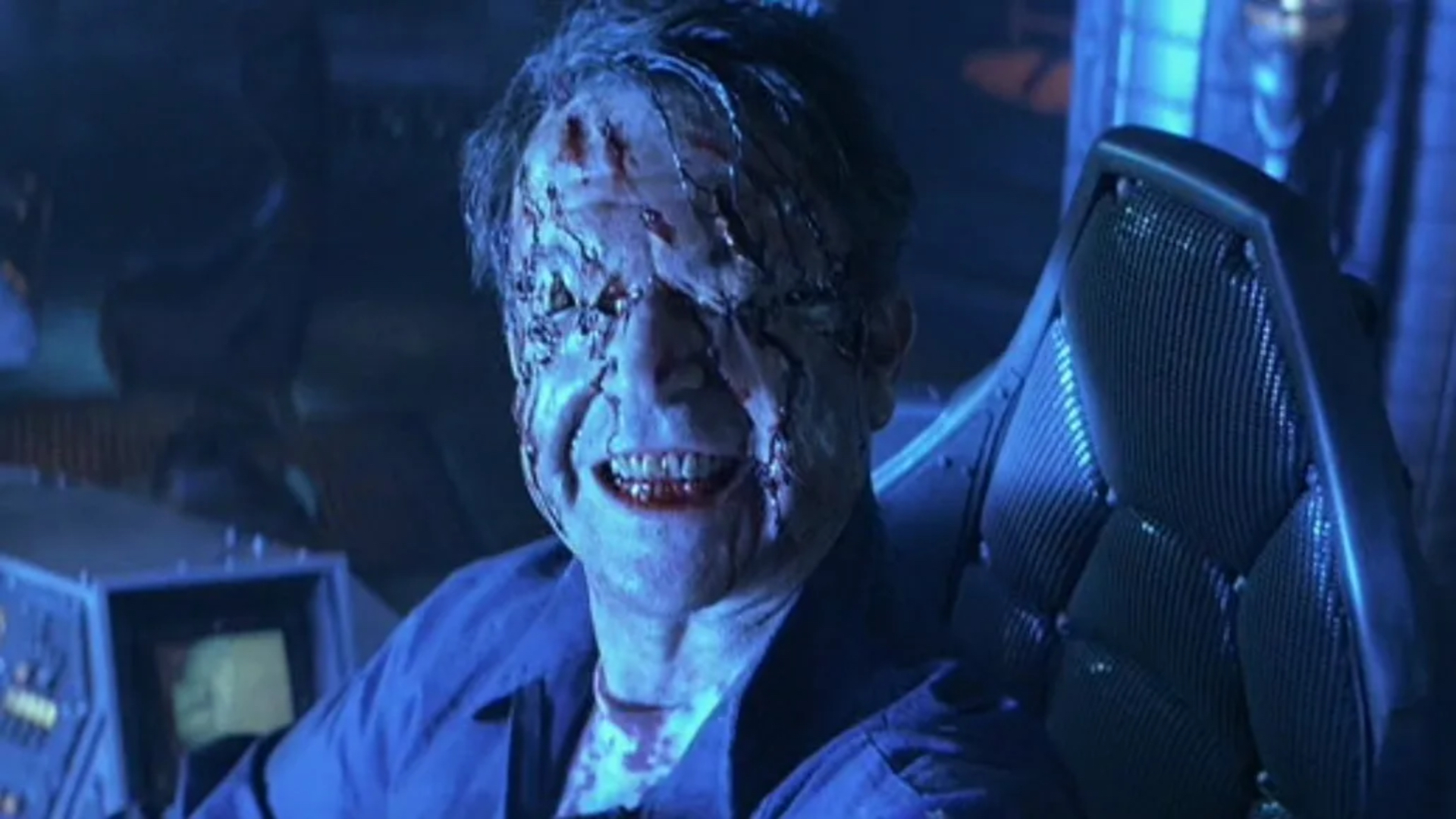
The scene that has always stuck with me is when Sam Neil turns around and his eyes are completely clawed out.
I think that was all in Phillip [Eisner's] original screenplay: "Where we are going, we won't need eyes to see." That's great stuff! But we gave it more of an operatic and painterly feel, with the kind of visual palette that I brought to the movie. We were very inspired by classic painters like Bosch and Salvador Dali and then photographers like Joel-Peter Witkin, who, although it's photographic work, is very, very painterly. I think the overlay of that and those influences gave the imagery even more power.
You’ve gone on to make some pretty incredible sci-fi horror films, like Resident Evil and Alien Vs. Predator. Is there anything that you learned while making Event Horizon that you've taken with you throughout your career?
I definitely learned the power of restraint – we just talked about it with the visions of hell, but also specifically within the editorial process. Sometimes less really is more. I think, interestingly, that horror and comedy have a lot in common in terms of editing and because there's a right time to deliver the punchline for a joke. If you do it too early, it's not quite as funny. If you do it too late, people have got to the joke already, and it's the same with horror.
Originally that scene had a couple of other edits in it where, when you went back to Kathleen’s son, he now had maggots crawling all over his legs – which was a pretty horrific image, but it was too horrific, and it kind of made the audience disengage. People went, "Ugh," and looked away from the screen. So when Jason Isaacs turned up, no one jumped, because they weren’t in the moment anymore. And I learned that that’s what they mean when they say "less is more." Because up until that point, I was operating under the idea that more is more, and those were definitely the important lessons I took away from Event Horizon.
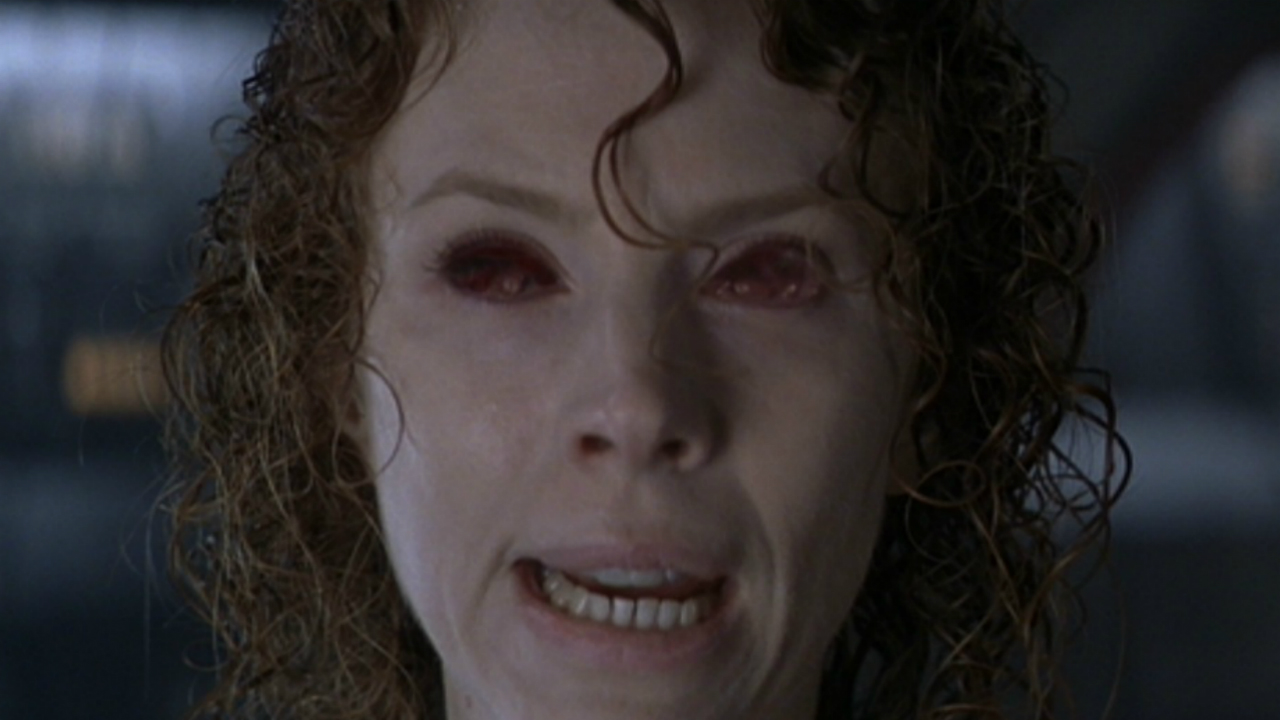
What makes space the perfect setting for a horror film?
The isolation of space, which in itself is already very scary. But you know, it's become increasingly difficult with haunted house movies to justify why people don't get on their cell phones or WhatsApp their friends or why they don’t get out of the house and call an Uber. Back in the day, they didn't have a telephone or a car – but it's so easy now. And I think that's what I loved about Event Horizon. We notched up the horror of the haunted house because when the haunted house is so far away, no one can come and help you, and that makes it truly terrifying.
Getting attacked by an alien in space is scary enough, but the fact that there’s no real 'monster' in Event Horizon, that the monster is the ship itself, is what truly makes the film horrifying.
It’s very interesting because I think that's one of the things that maybe hurt us a little bit when we had the actual release. People from the studio would say, "Ah, if only we had a monster in this movie." I think they were looking for something a little more definite – rather than a ship that has been to hell – or has it been to hell? – it’s been somewhere that might be hell, hell might be a bit Lovecraftian, but it also might not be Lovecraftian...it’s up to the audience’s imagination.
And that kind of drove the studio crazy because they wanted definitive answers. But I think that's ultimately what's given the movie its power over time: those answers aren't there, it's open to interpretation, and the audience can bring their own interpretation to it. Which I think has given the movie its longevity – that, combined with the fact that the movie still looks fabulous.
I have Richard Yuricich to thank for that, my visual effects supervisor, who was the only visual effects supervisor I've ever met who hated blue screens and didn't want to do visual effects. He was like, well, we could do a visual effect. We could put a blue screen here and Laurence Fishburne in front of it. Or, you could hang him upside down in a set that's built upside down and rotate him, rotate the set, and rotate the camera. It'd be really difficult and really unpleasant for Laurence, but God, it would look great.
There was a discussion about whether we should do the spaceship in CGI and God, I'm so glad we didn't. We went for big models because they still look great today, whereas can you imagine if they were 1997 CG spaceships? The movie just wouldn't have its power anymore.
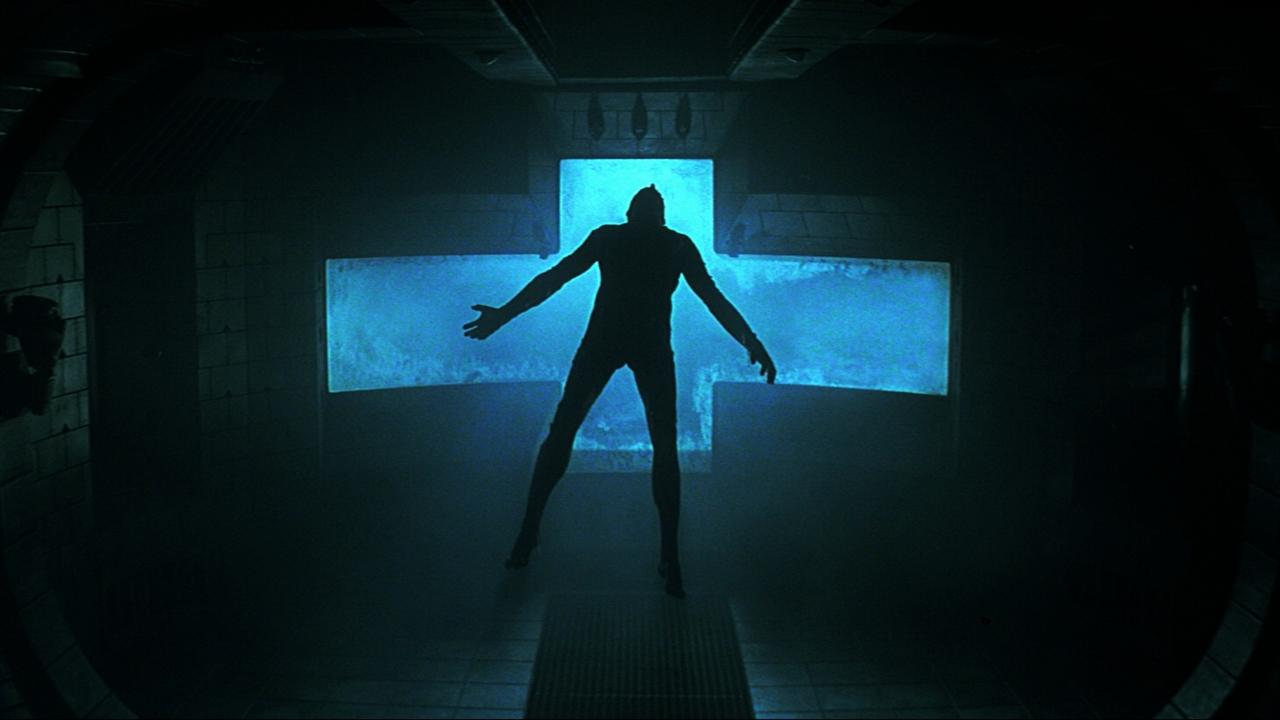
Tell me about the alternate endings.
It always ended with the two survivors being rescued. I think that was always what we were going towards, but there were elements of the ending that definitely changed – the, the burning man was in and then out of the movie in different cuts, as well as specifically mentioning the word 'hell' was in and out of the movie because Laurence Fishburne didn't want to say 'hell.'
He understood the power of words and felt that it kind of gave the whole game away. I brought Andrew Kevin Walker in to do a 'hell rewrite.' I loved his work on Se7en and he did this very expensive rewrite that basically said the ship had gone to hell and then I showed it to Fishburne and he said, "I'm gonna say it once. And that's it." And he was right as well to keep it contained to not be too obvious about it – and it was great.
Speaking of endings and sequels, are you involved with the [Event Horizon] Amazon series?
No, it’s nothing to do with me. Paramount owns the underlying rights to Event Horizon so they can do whatever they see fit with it. I feel like the original movie has a great power on its own, so I don't know whether doing sequels necessarily is the right kind of thing. I think one of the great things about the film is the ambiguity of it and when you start trying to explain that ambiguity, you start unstitching it.
I think a lot of horror movies end with, "oh, could there be a sequel?" And the end of Event Horizon is very much like, no, this is it.
[Laughs] When it was first released I went to a lot of screenings where people were walking out of the cinema shocked, and it's like, did they like it? Did they not like it? Because no one's saying anything. And that really unnerved the studio because what they like is people cheering at the end and applauding and no one did that, and that really freaked them out. It’s like, well, what are you going to applaud, really? They’re either still in hell or Joey Richardson has gone insane.
It's not really a happy ending, but that didn’t matter to me. When I was doing Mortal Kombat, they were also doing Se7en at New Line and I love that movie – but it ends with Gwyneth Paltrow’s head in a box. That’s not an ending that people were applauding at. And that's why I wanted to work with Andrew Keven Walker, because of the power that ending had over time.
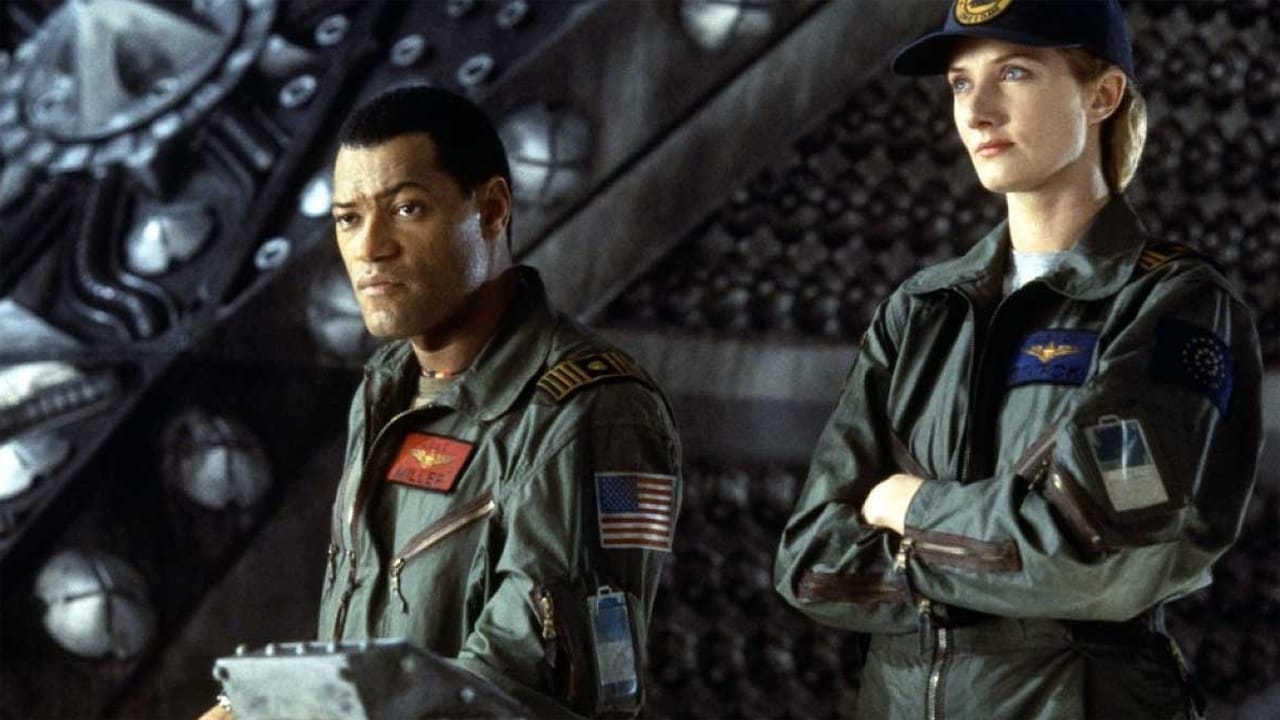
Were you surprised or delighted to hear the film referenced in Thor: Love and Thunder?
I haven't seen it yet – [my wife] Mila [Jovovich] is off making a movie and I’m looking after the kids. So I’ve just been watching Peppa Pig. But friends of mine have texted me about it, and I can’t wait.
It technically means you, as Paul Anderson, are a character in the Marvel Cinematic Universe.
Oh, fabulous! [laughs] My oldest daughter is already in the Marvel Cinematic Universe, because she played a young Black Widow in the Black Widow movie. So I’ll be happy to tell her that her dad has finally joined her.
Event Horizon is available to stream on Amazon Prime Video, The Roku Channel, and Apple TV Plus. For more, check out our list of the best horror movies of all time and our ranking of the best sci-fi movies of all time.
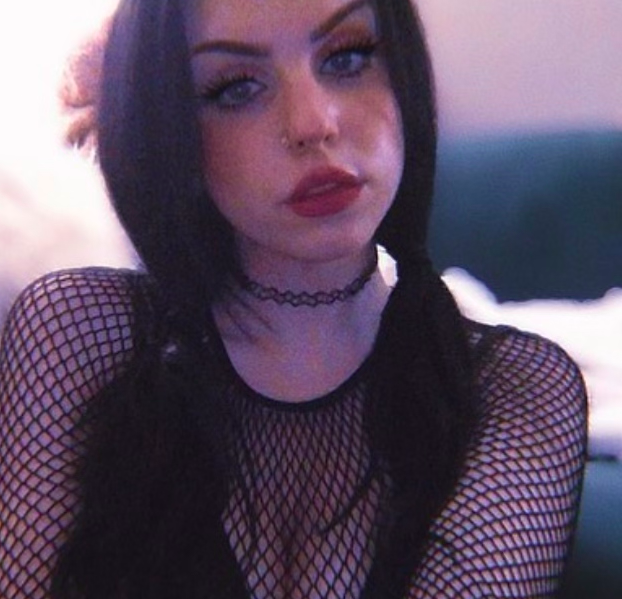
Lauren Milici is a Senior Entertainment Writer for GamesRadar+ currently based in the Midwest. She previously reported on breaking news for The Independent's Indy100 and created TV and film listicles for Ranker. Her work has been published in Fandom, Nerdist, Paste Magazine, Vulture, PopSugar, Fangoria, and more.


